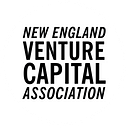Event Recap: The Future of FinTech
On April 28th, the New England Venture Capital Association, together with Underscore VC, convened FinTech investors, experts, and industry veterans in a VC Briefing: The Future of FinTech. Our VC Briefing series convenes the innovation community for in-depth, interactive-discussions around topical key themes.
NEVCA President, Jody Rose, kicked off the event with a warm welcome and an introduction to the panelists. Sooah Cho, Investing Principal at Underscore VC moderated the panel featuring Charley Ma, General Manager of FinTech at Alloy, Founder of Plaid; Ben Mackinnon, Founder & CEO of Kard; and Chris Gardner, Investing Partner at Underscore VC, Co-Founder of Paydiant.
The panelists dove into the exciting world of FinTech trends, exploring the overlap of FinTech and independent creators and ultimately the rise of a new class of small to medium size businesses in this category, as well as the growing intersection between FinTech and gaming. A common theme noted throughout the event was the over-rated FinTech trends that may be under utilized in practice— where, for example, new trends in the space like NFTs are skyrocketing in popularity but still haven’t reached their full potential or matured fully.
Each founder dove into their personal experiences within the industry, as well as, key success factors as a founder in the FinTech space. Charley Ma discussed the story of his company, Plaid, a financial services company based in San Francisco, California. The company builds a data transfer network that powers FinTech and digital finance products. Charley explained that, “It’s name of the game. You’re in FinTech, which is this massive area, but you have to start by figure out the first segment of the market that you can execute incredibly well for and then start to expand beyond that. So our approach is to tackle and win one market segment and then expand from there.”
Chris Gardner, a seasoned entrepreneur across multiple companies, then offered key words of advice for newer startups in the space, explaining that, “No one will get the amount of support or the pricing that your first customer will get. It’s very difficult to support and deliver well to ten new first customers at once, so it’s really important to pick the first one carefully. That first customer can deliver many advantages, so I’d encourage founders to not necessarily pick that first customer based on revenue outcome. Our first customer FIS Global became our first direct customer, our first channel customer, an investor, had huge input to the shaping of our product, etc. Try to optimize for the most value there instead of choosing the one who writes the biggest check.”
Sooah then shared that early hires can be pivotal to the success of a new startup and asked the speakers to share advice regarding important decisions they made early on in regards to hiring for their core team. Ben Mackinnon shared his approach to the matter, saying, “I always try to hire people that are smarter and better than me at whatever we’re hiring for. I’m a non-technical sole founder, so I wanted to make sure to hire the best CTO and Chief of Engineering possible, and I think we did a really good job of that. Whatever challenges we are looking to solve at a time for the next 3–6 months, we try to bring in experts on that topic as much as possible.”
Finally, we turned it over to the audience for a number of questions from the panelists. One great question was: “By the end of the decade, there will be 80 million retirees controlling 80% of wealth. Where do you see the FinTech opportunity relating to an aging population?”
Charley responded by delving into the concept of the unprecedented generational transfer of wealth that we’ve been seeing. This, in combination with the interesting headwinds around the way that Gen-Z views and discusses money as well as their openness to adopt new digital products, is kind of at odds with an older generation that isn’t as open to using new products and trusts more in using the banks. I think there’s a really good opportunity around education about how you can manage wealth holistically as a family.”
After several more interesting questions, the event concluded with an open Rally Video networking session, a great opportunity for participants to meet and share experiences with all of the founders and investors present. The platform allows users to enter and exit individual rooms and tables, where people can explore new topics and conversations with everyone present in a casual, pressure-free environment.
Thanks to all who came to such a fantastic, informational event, and a special shoutout to the panelists. Want to stay up to date on upcoming Member Edu Series sessions and other NEVCA events? Check out our events calendar!
